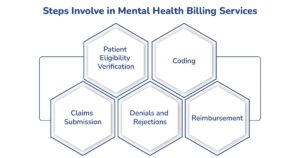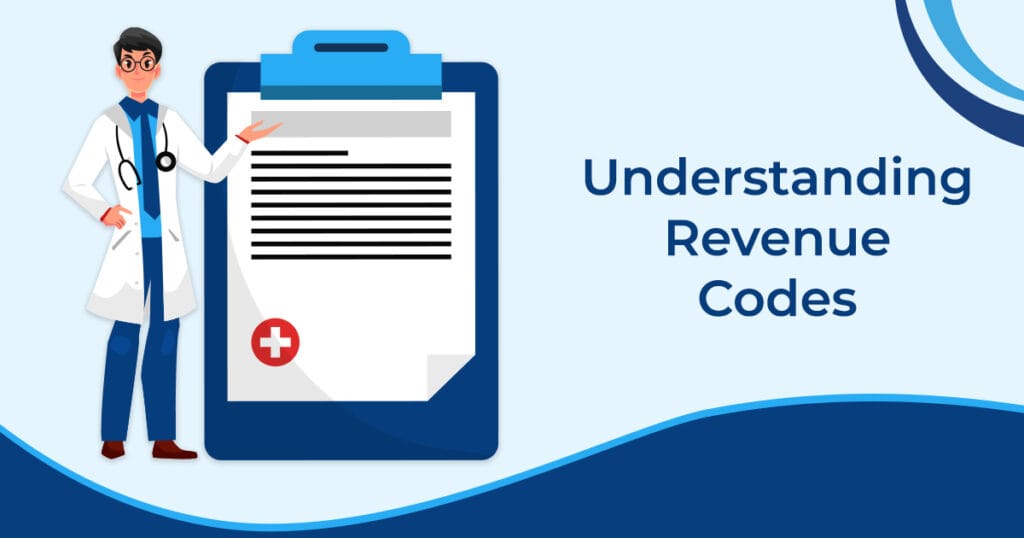Mental health challenges affect approximately 20% of the global population, with individuals experiencing behavioral patterns with typical functioning. According to recent studies, it is estimated that every one out of five people is facing the issue of mental health. It is the situation when a person behaves in a way that is unusual rather than normal. Well, in all such moments, seeking an expert guide is vital so that you might manage the symptoms of the mental health disorder. In the meantime, behavioral health billing is more important for a healthcare provider for smooth operations.
Its treatment includes medication management and ultimately improves overall psychological well-being and quality of life. Here in this guide, we’ll discuss all the mental health CPT codes and the benefits of getting services from a behavioral health billing company.
What Is Behavioral Healthcare Services?
Behavioral health the examination of emotions, biology, and mentality is crucial in understanding why individuals behave in certain manners. It also affects their daily lives. However, billing of behavior & mental health can be quite challenging, and the funding mechanisms for treatment.
The ongoing epidemic of opioid abuse, which involves both prescription pain relievers and illicit substances, has a substantial impact on the US healthcare sector. It is important to recognize the challenges that lead to reimbursements and, at times, denials. To avail of the billing services for mental health practice, you may contact us at MAVA Care, a behavioral health billing company.
Behavioral & Mental Health Billing Services
Behavioral Healthcare Services encompass professional care and treatment of mental health, emotional well-being, and psychological disorders.
I. Behavioral Health Billing Services
Behavioral health billing services handle the complex reimbursement methods for mental health and substance medical care. These services include complex coding, documentation, and claim filing to a variety of insurance companies, including private insurers. So, Medicare and Medicaid allow healthcare providers to receive accurate and timely compensation for their mental health interventions. You may get more about it through a behavioral health billing company about its processing and working procedure.
Furthermore, the billing process encompasses patient record management and diagnostic coding. It includes specific mental health classification systems like ICD-10, verification of patient insurance coverage, claims submission, tracking reimbursements, and managing denied claims.
II. Mental Health Medical Billing Services
Mental health medical billing services are specialized financial systems that handle complicated reimbursement procedures for psychological and psychiatric evaluation. These services include exact recording, diagnostic coding, insurance verification, and claims submission for mental health treatments. Healthcare professionals are compensated while navigating complex healthcare legislation.
Moreover, the behavioral health medical billing process necessitates knowledge of mental health coding systems such as ICD-10 and comprehension of various insurance models. Thus, it is crucial to track patient benefits by managing claim submissions, dealing with refused claims, and keeping detailed patient records.
What Is the CPT Billing Code for Mental Health?
The behavioral health billing codes for psychiatric services conditions are coded from 90785 to 90899 in the Psychiatry of CPT code set. They represent the services provided to patients through medical professionals who are psychiatric or other specific services and could be served by others, not medical, who are licensed professional counselors or marriage therapists and family.
In addition, the Current Procedural Terminology, or CPT code set, is the list of tests, evaluations, and treatments by healthcare providers. The medical biller monitors the codes’ healthcare trends and issues and supports the claims submission process. It means the codes will tell the payers the procedures that you need them to pay for as the provider.
What Is the Difference Between 90792 and 99204?
CPT Code 90792 | CPT Code 99204 |
| Psychiatric diagnostic evaluation with medical services. | It includes both office and telehealth inpatient visits. |
| Used for initial psychiatric evaluations, including diagnostic assessment and medical decision-making. | Comprehensive evaluation for new patients typically involves complex medical decision-making. |
| Primarily focused on psychiatric diagnosis, including a detailed history, mental status exam, and medical aspects. | General evaluation of a new patient for medical or non-psychiatric reasons and examination. |
| Psychiatric or mental health services. | Used across various specialties, including primary care and non-psychiatric specialties. |
Steps Involve in Mental Health Billing Services

1-Patient Eligibility Verification
Determining the patient qualifies for any form of insurance coverage is the initial step in the billing process about mental health. It can be done by contacting the patient’s insurance company and providing that company with the patient’s demographic information as well as the policy number. However, provide coverage for behavioral health billing services, but some might only cover certain forms of treatment such as a psychiatric evaluation or medication management.
2-Coding
After verifying the patient’s eligibility, the next stage in behavioral health billing is to code the services delivered. It entails allocating CPT (Current Procedural Terminology) codes to each service. CPT codes are unique to each type of mental health care, and payers use them to calculate how much compensation they will provide.
3-Claims Submission
Once the behavioral health coding is done, the provider can submit claims to the patient’s insurance company. Submission can either be done through electronic or paper submission. If submit a claim electronically, a clearinghouse would be necessary.
4-Denials and Rejections
Payers often deny or reject behavioral health claims. The steps include as:
- Incorrect coding for behavioral health treatments leads to claim denial.
- Pending or full of errors in documentation may reject the claim.
- Lack of prior authorization: Obtaining prior authorization would make claim reimbursement easier.
5-Reimbursement
After the payer processes a behavioral health claim, here comes the next step in billing. The reimbursement amount will vary according to the patient’s contract. Most payers repay providers according to a pricing schedule. A price schedule indicates the maximum amount that the payer will reimburse for each type of service in behavioral health billing solutions.
Equally, some payers compensate providers at a percentage of their typical and customary prices. So, behavioral health billing company charge is the amount that the provider usually has to pay for a specific service within the negotiated time frame.
Advantages of Behavioral Health Services
Most providers have found behavioral health billing solutions quite cumbersome. Therefore, they hire specialized services for that purpose. Some of the advantages include:
- Grant permission to specialists to review healthcare billing.
- Faster claim acceptance and faster remittance cycles.
- Lower chance of making coding mistakes and breaking the rules.
- Permits healthcare providers to concentrate on clinical tasks rather than administrative work.
Important of Medicare in Mental Health Services for Patients
Patients under Medicare are particularly vulnerable to feeling lonely and isolated, which may result in depression and anxiety. Those who have multiple chronic conditions experience poor care coordination and, therefore, tend to feel abandoned by the healthcare system. When the mental problems are not addressed, they worsen the physical condition, reduce patient engagement, and cause more complex health conditions.
Similarly, it leads to poor optimization and deteriorated quality of treatment, which costs patients more money. It puts additional time and resources into overworked practices and hospitals. Engaging patients about their mental health and providing them with tools to manage it and a support system to help them along the way is best done in a primary care setting.
Psychiatric Care for Mental Health Services
Using the appropriate CPT codes is crucial when it comes to behavioral health billing for psychiatric care services. The type of service, such as a medication maintenance visit or a mental diagnostic evaluation, determines the CPT codes for psychiatric care services. For instance, CPT code 90807 is used for behavioral health coding in a 30- to 59-minute mental diagnostic evaluation. CPT code 99214 would be used for a 30- to 59-minute medication management visit.
Documenting psychiatric care services understandably and straightforwardly is also crucial. Included in the documentation should be:
- The mental health diagnosis of the patient.
- The course of treatment.
- The prescription medicines.
Let’s Recap
Billing for behavioral health services includes claim submission, payment posting, and eligibility verification. It requires specialized expertise in medical coding, insurance verification, and claims submission. Professionals use specific diagnostic codes like ICD-10 with accurate reimbursement for healthcare providers.
The process includes documenting patient treatments, tracking insurance benefits, managing claim submissions, and resolving denied claims while maintaining patient confidentiality. You may also rely on a behavioral health billing company for better and error-free billing. For that, reach out to MAVA Care to get all-in-one services.
FAQ’s
Are medical billing and mental health billing similar?
Mental health billing differs from medical billing, as the latter includes general healthcare treatments. Mental health billing requires specialized codes and it often involves more intricate insurance procedures. This process entails extensive paperwork, along with specific regulations for mental health care payments.
Is Medicaid the biggest payer for mental health?
Certainly, Medicaid is the major payer for those suffering from mental health issues. It includes a broad spectrum of behavioral health treatments aimed at low-income individuals and families. However, access to these services can fluctuate considerably funding and resources vary from state to state.
What CPT codes are used for behavioral health?
The CPT codes for behavioral health, and more especially, mental health billing, are as follows:
- CPT Code: 99215
- CPT Code: 99205
- CPT Code: 90833
- CPT Code: 90838
Is mental health billing hard?
Mental health billing is tricky because it involves complicated insurance rules, specific medical codes, and lots of paperwork. Professionals need special training to handle the complex process of getting paid for mental health services.
How to bill for mental health?
To bill for mental health, few steps to consider:
- Identify the correct CPT codes based on the service type (e.g., 90791 for evaluations, 90834 for therapy).
- Identify accurate documentation of time, medical necessity, and diagnosis codes (e.g., ICD-10).
- Submit claims to insurance, addressing authorization and verifying benefits.









